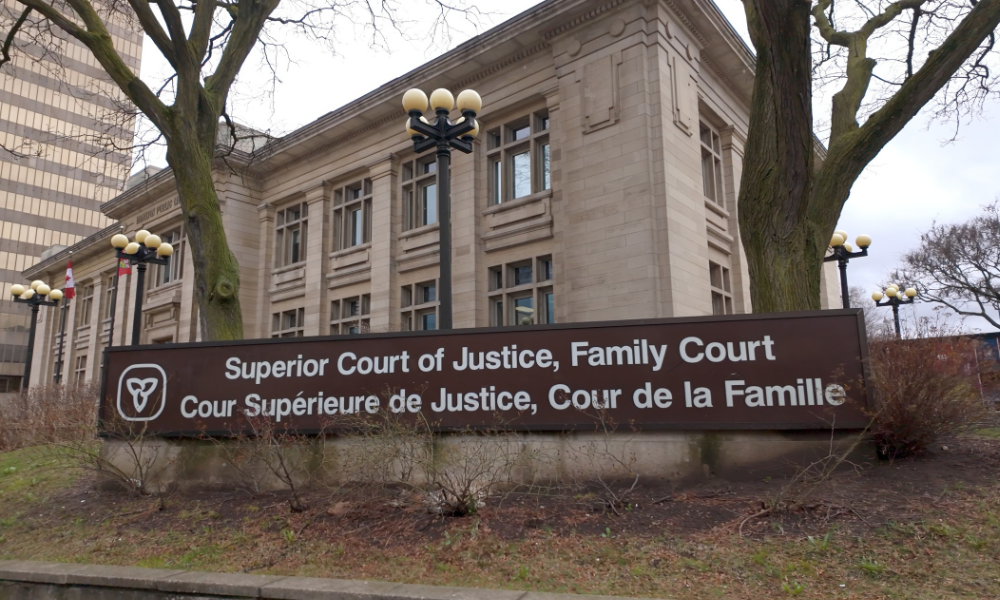
Parties' dispute involved divorce, spousal and child support, equalization of net family property

The Ontario Superior Court of Justice has awarded a woman full recovery costs upon finding that her former husband’s actions – seeking to harm her emotionally, psychologically, and financially and deceive the court – amounted to bad faith.
In Scott v Scott, 2025 ONSC 3456, the court issued a divorce order to the parties. The ex-wife emerged victorious in the following trial issues, among others: sole decision-making authority over the two children, spousal and child support, life insurance, health and dental benefits, and equalization of the net family property (NFP).
The ex-wife asked for costs based on her success at trial. Seeking full recovery costs, she said her former husband acted in bad faith, specifically by pursuing a claim that she secretly worked as an internet porn star with earnings of millions of dollars, which allegedly entitled him to an equalization payment of $1,843,580.
The ex-husband asked the court to fix his former wife’s partial recovery costs at $37,500. He argued that he had made reasonable concessions on some issues and succeeded to an extent on two trial issues.
Justice Thomas Heeney of the Ontario Superior Court ordered the ex-husband to pay his former wife’s full recovery costs, fixed at $57,800, all inclusive. The court said his actions fell within the definition of bad faith in Scalia v. Scalia, 2015 ONCA 492.
According to Heeney, the ex-husband showed bad faith when he spent much of the trial pursuing a “patently ridiculous” claim that his former wife was secretly an internet porn star who used a specific screen name and earned $3,830,401 in total from selling pornographic videos online these last 10–15 years.
Heeney noted that the ex-husband’s side served thousands of pages of documents detailing the financial claim against his former wife at the courthouse in the early morning hours of the trial’s first day. The files served included numerous pornographic photographs.
The ex-husband entered into evidence 39 images taken from a pornographic website and swore under oath that they depicted his former wife. However, Heeney found that most pictures failed to show the woman’s facial features, while the 13 images that included a face still featured a mask that hid the person’s identity.
Heeney held that – though the ex-husband had many opportunities to capture images where the facial features of the woman in the pornographic video were visible – none of the screenshots in the evidence showed her face, which prevented a comparison between that woman and the ex-wife.
Heeney ruled that this deficiency in the evidence was not a coincidence. Rather, it was the ex-husband’s attempt to deceive the court and a strategy to include only images preventing it from making a facial comparison and forcing it to rely on his alleged ability to recognize his former wife based on the visible body parts.
Heeney accepted the ex-wife’s claims that she:
Heeney found the hourly rates of the ex-wife’s former and current counsel reasonable and deemed the time they devoted to this case proportionate to the number of issues and the sum of money involved, which was approximately $1.9 million.
Heeney determined that the ex-wife was overwhelmingly the successful party in the various issues and sub-issues included in this proceeding.
Regarding the ex-husband’s claim of partial success in the child support issue, the court rejected his allegation that he deserved a refund for an overpayment of $27,998.15 in support. Instead, the court said he underpaid support by $11,981.17.
On the ex-husband’s claim of partial success in a promissory note issue, Heeney accepted that he deserved a deduction of $19,790 when calculating the equalization payment owed to his former wife. However, Heeney noted that this amount was far from the sum of $83,626 that the ex-husband included in his NFP statement.
Regarding the equalization issue, Heeney noted that the court ultimately awarded the ex-wife an equalization payment of $55,846.50. Heeney said the ex-husband – who sought an equalization payment of $1,899,426.50 – exceeded that award by $1,843,580.
On the other hand, the ex-wife requested an equalization payment of $75,636.90, which was $19,790.40 off from the outcome. Heeney concluded that she was obviously successful in the equalization issue.